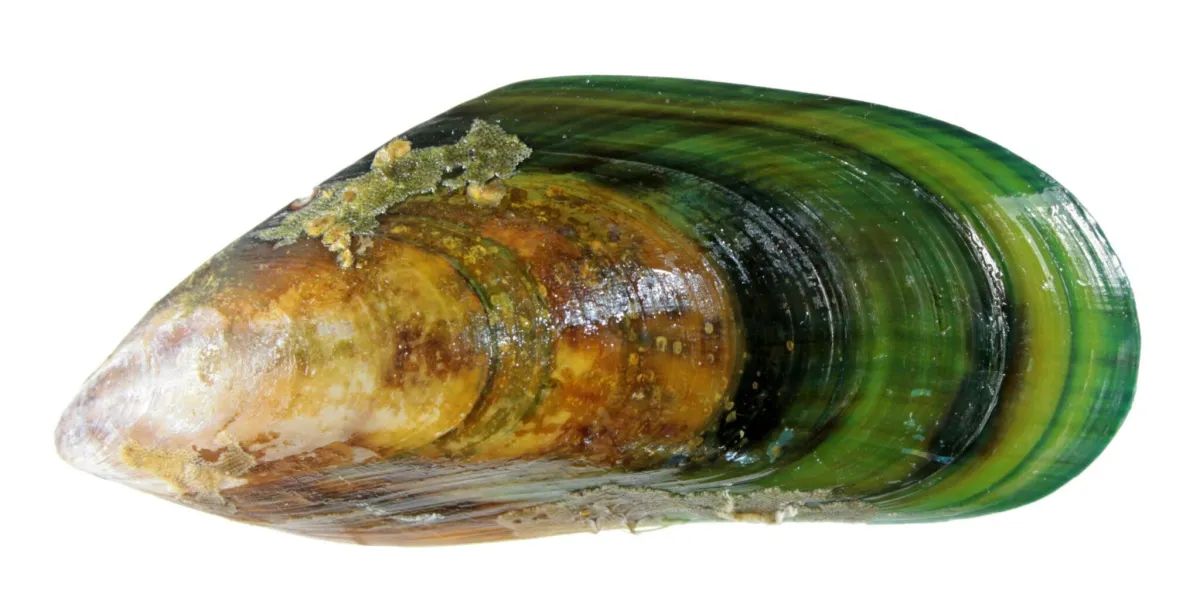Are you wondering about the best Sheepadoodle eating habits to keep your furry friend healthy and happy? Choosing the right diet for your Sheepadoodle can make all the difference in their energy, coat health, and overall well-being.
As a proud Sheepadoodle owner, I understand how important it is to provide nutrition that supports your pup’s unique needs. I’m here to share expert advice that goes beyond generic dog care tips, offering guidance tailored to this lovable breed.
Sheepadoodle feeding is key to their growth, from playful puppies to active adults. The right food choices can enhance their vitality and prevent common health issues, making it a vital part of responsible pet care.
In this guide, you’ll discover the best feeding practices, portion sizes, and food types to suit your Sheepadoodle’s life stage and lifestyle.
Let’s dive in!
Understanding Sheepadoodle Nutritional Needs Why Breed-Specific Diets Matter Key Nutrients for Sheepadoodles
When it comes to feeding your Sheepadoodle, understanding their unique nutritional needs is key. Sheepadoodles are a mix of Old English Sheepdog and Poodle, so they often benefit from diets tailored to medium to large breeds. Breed-specific diets matter because they address common health aspects like joint support, healthy skin, and coat care, which are important for these active, fluffy dogs.
Key nutrients for Sheepadoodles include:
- High-quality protein: Supports muscle development and energy.
- Healthy fats: Essential for a shiny coat and brain health.
- Glucosamine and chondroitin: Help maintain joint health, reducing risks of hip dysplasia common in large breeds.
- Omega-3 fatty acids: Aid skin health and reduce inflammation.
- Balanced vitamins and minerals: Keep the immune system strong.
By focusing on these nutrients, you ensure your Sheepadoodle stays healthy and happy. Choosing a diet designed for their breed size and activity level helps prevent common issues and supports their overall well-being.
Feeding Sheepadoodles by Life Stage

Puppy Feeding 0-6 Months
During the first six months, Sheepadoodle puppies need nutrient-rich food to support rapid growth. Choose high-quality puppy food formulated for large breeds, with balanced proteins, fats, and essential vitamins. Feeding 3 to 4 small meals a day helps with digestion and energy levels. Make sure to follow portion guidelines based on weight and growth to avoid overfeeding.
Adolescent to Adult Feeding 6 Months-2 Years
From six months to two years, your Sheepadoodle’s metabolism slows down a bit, but they still need plenty of nutrients for muscle development and energy. Transition gradually to adult large breed dog food that supports joint health and maintains a healthy weight. Feeding twice a day is usually sufficient, with portion sizes adjusted to activity level and size.
Senior Sheepadoodle Feeding 7+ Years
Once your Sheepadoodle hits 7 years or older, their dietary needs change to support aging joints and slower metabolism. Senior dog food with added glucosamine and antioxidants can help maintain mobility and immune health. Keep portion sizes controlled, as older dogs are less active and prone to weight gain. Monitoring weight and adjusting meals is key during this stage.
Best Food Options for Sheepadoodles
When it comes to feeding your Sheepadoodle, choosing the right food is key to keeping them healthy and happy. Here’s a quick look at the best food options for Sheepadoodles:
Commercial Dog Food
High-quality commercial dog foods designed for large breeds are a solid choice. Look for brands that use real meat as the first ingredient, avoid fillers like corn and soy, and include added vitamins and minerals. These formulas help provide balanced Sheepadoodle nutrition and are convenient for busy pet owners.
Raw Feeding for Sheepadoodles
Some owners prefer a raw diet, which includes fresh meats, bones, fruits, and veggies. A raw diet can promote better digestion and shinier coats if done right. However, it requires careful planning to meet all your Sheepadoodle’s nutritional needs and proper handling to avoid bacteria.
Homemade Diets
Making homemade meals is another option if you want full control over what your Sheepadoodle eats. To keep it balanced, include lean proteins, whole grains, and a variety of vegetables. Always consult a vet or pet nutritionist to ensure your homemade diet covers all key nutrients.
No matter which food path you choose, the goal is a diet that fits your Sheepadoodle’s size, age, and activity level while supporting their overall health.
Feeding Schedules and Portion Control
How Much to Feed a Sheepadoodle
Knowing the right amount to feed your Sheepadoodle is crucial for their health. Their portion sizes depend on their age, activity level, and weight. As a general rule, puppies need more frequent, smaller meals, while adults do well with two meals a day. Overfeeding can lead to obesity, so always follow feeding guidelines on the dog food package and adjust based on your dog’s body condition. For large breed dog food like Sheepadoodles, aim for portions that maintain a lean, active body.
Creating a Feeding Routine
Consistency helps your Sheepadoodle know when to expect meals and supports better digestion. Try to feed at the same times daily—usually morning and evening. If you have a puppy, divide their daily food into three to four smaller meals spread throughout the day. As your Sheepadoodle ages, settle into a twice-daily feeding schedule. Avoid leaving food out all day to prevent overeating and picky eating habits.
Water and Hydration
Fresh water availability is just as important as food. Sheepadoodles need constant access to clean, fresh water to stay hydrated, especially after exercise or in hot weather. Dehydration can affect their digestion and overall health, so check their water bowl regularly and refill it as needed. If your dog is on a dry kibble diet, they may need more water than those on wet or raw diets.
Common Feeding Challenges and Solutions
Feeding a Sheepadoodle comes with a few common challenges, but knowing how to handle them can make life easier for both of you.
Picky Eaters
Sheepadoodles can sometimes turn their noses up at food. If your dog is being picky:
- Keep a regular feeding schedule to encourage appetite.
- Try mixing wet food with dry kibble for added flavor.
- Avoid constantly offering treats that spoil their appetite.
- If pickiness continues, consult your vet to rule out health issues.
Food Allergies and Sensitivities
Sheepadoodles may develop allergies or sensitivities to certain ingredients. Watch for signs like itching, upset stomach, or ear infections. To handle this:
- Switch to limited ingredient or hypoallergenic diets.
- Introduce new foods gradually.
- Work with your vet for allergy testing or specialized diets.
Preventing Obesity
Sheepadoodles need a balanced diet and regular exercise to maintain a healthy weight. To prevent obesity:
- Measure portions carefully based on your dog’s age, weight, and activity.
- Avoid free-feeding or leaving food out all day.
- Limit high-calorie treats and table scraps.
- Keep up with daily walks and playtime to burn calories.
By tackling these common issues early, you’ll help your Sheepadoodle stay happy and healthy through all life stages.
Health Considerations Linked to Diet

Hip Dysplasia and Joint Health
Sheepadoodles are prone to hip dysplasia, so their diet plays a big role in keeping joints healthy. Feeding your dog food rich in omega-3 fatty acids, glucosamine, and chondroitin helps support cartilage and reduce inflammation. Look for large breed dog food formulated with these nutrients or consider supplements after checking with your vet.
Bloat Gastric Dilatation-Volvulus
Bloat is a serious condition that Sheepadoodles can face due to their size and deep chest. To reduce the risk:
- Feed smaller, more frequent meals instead of one big meal a day
- Avoid vigorous exercise right before and after eating
- Use slow feeder bowls to prevent gulping air
Keeping a close watch on eating habits can prevent this life-threatening issue.
Skin and Coat Health
A healthy diet directly impacts your Sheepadoodle’s skin and coat. Essential fatty acids, especially omega-6 and omega-3, along with vitamin E, keep fur shiny and skin itch-free. Choose foods with high-quality proteins and avoid common food allergens if you notice excessive scratching or rashes.
By focusing on these diet-related health factors, you help your Sheepadoodle stay happy, healthy, and comfortable through all life stages.
Tips for New Sheepadoodle Owners
Bringing home a Sheepadoodle is exciting, but feeding them right from day one is key to a happy, healthy dog. Here are some quick tips for new Sheepadoodle owners to keep their pup’s eating habits on track:
- Start with puppy-specific food: Use high-quality puppy food designed for large breeds to support their fast growth.
- Stick to a feeding schedule: Feed your Sheepadoodle at the same times every day to build routine and help digestion.
- Watch portion sizes: Overfeeding can lead to obesity, so follow recommended portion sizes for their age and weight.
- Introduce new foods slowly: To prevent stomach upset or allergies, change their diet gradually over 7-10 days.
- Keep fresh water available: Hydration is just as important as food, so always have clean water ready.
- Monitor their weight and energy: Regularly check their body condition to adjust meals and keep them at a healthy weight.
- Consult your vet: Talk to your veterinarian about the best diet choices as your Sheepadoodle grows and ages.
These tips help build a strong foundation for your Sheepadoodle’s health and happiness through smart feeding habits.
FAQs About Sheepadoodle Eating Habits
How often should I feed my Sheepadoodle?
Most adult Sheepadoodles do well with two meals a day. Puppies need 3 to 4 smaller meals daily to support their growth. Stick to a consistent feeding schedule to keep their digestion on track.
What is the best food for Sheepadoodles?
Sheepadoodles thrive on high-quality commercial dog food formulated for large breeds or active dogs, raw diets prepared with vet guidance, or homemade meals balanced with essential nutrients. Choose options rich in protein and healthy fats.
How much should I feed my Sheepadoodle?
Portion sizes vary depending on age, weight, and activity level. Generally, adult Sheepadoodles need 2.5 to 3.5 cups of food per day, split between two meals. Puppies require more frequent, smaller portions.
Can Sheepadoodles have food allergies?
Yes, some Sheepadoodles may develop allergies or sensitivities to common ingredients like chicken, beef, or grains. Look for allergy signs such as itching, redness, or digestive upset and consult your vet for a suitable diet.
Is raw feeding safe for Sheepadoodles?
Raw diets can be safe when properly balanced and prepared, but they require careful handling to avoid nutritional gaps and bacterial risks. Always consult a vet or canine nutritionist before switching to raw foods.
How do I prevent my Sheepadoodle from becoming overweight?
Control portions, avoid frequent treats, and ensure regular exercise. Use a feeding schedule and monitor your dog’s weight and body condition regularly to keep obesity at bay.
Do Sheepadoodles need special nutrients?
Yes, nutrients that support joint health (like glucosamine and omega-3 fatty acids) are important since Sheepadoodles are prone to hip dysplasia. Balanced vitamins and minerals contribute to a shiny coat and overall health.
If you have more questions about Sheepadoodle diet or feeding schedules, feel free to reach out to local vets or Sheepadoodle communities for tailored advice.

